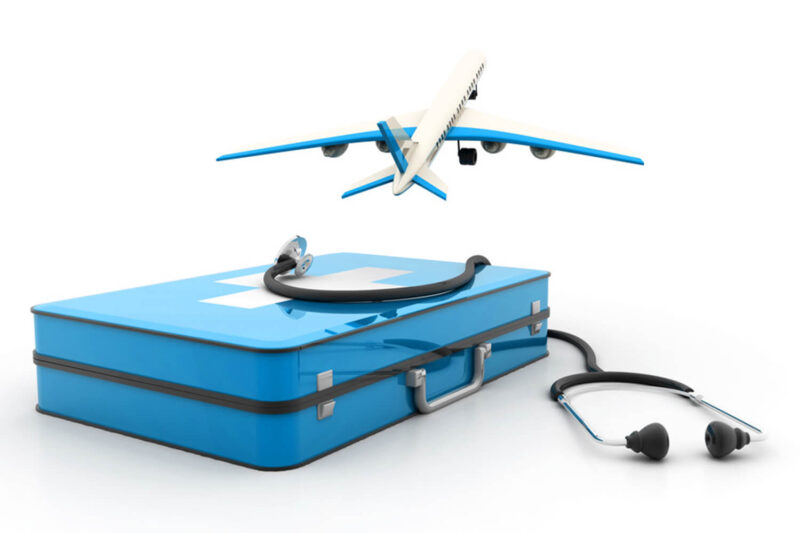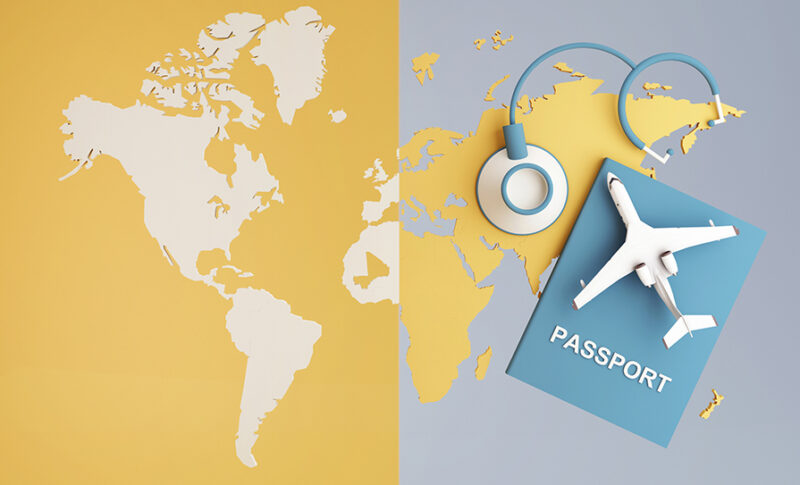In today’s interconnected world, seeking medical treatment abroad, commonly referred to as medical tourism, has grown significantly in popularity. This surge isn’t merely about the allure of combining healthcare with travel; it’s rooted in practicalities and necessities. Patients around the globe are increasingly looking beyond their borders for medical solutions.
The reasons for this trend are multifaceted: some are drawn by the cost-effectiveness of treatments in certain countries, others seek access to specialized procedures not available in their home nation, and then some value the privacy, comfort, and luxury that overseas medical facilities can offer. The essence of this journey transcends the mere act of receiving medical care; it’s a nuanced decision-making process that involves weighing various factors like risks, costs, and the overarching benefits.
Selecting Your Medical Destination

Choosing the right destination for healthcare treatment is a pivotal step. This decision shouldn’t be taken lightly, as it involves more than just picking a country. It necessitates an in-depth analysis of the healthcare system of the potential destination, the quality of medical facilities, and the expertise of healthcare professionals in that region. It’s imperative to consider the language barrier, cultural differences, and the legal aspects of receiving healthcare in a foreign country.
Patients must investigate whether the destination offers the specific treatment they require and the track record of success in that area. This requires thorough research, often involving consultations with medical professionals in your home country and reading up on patient testimonials and reviews of hospitals and clinics abroad. For professional help in choosing your medical destination, check out Doctor.Global.
Understanding Legal and Ethical Considerations
Navigating the legal and ethical landscape of receiving healthcare treatment in a foreign country can be complex. Every country has its own set of medical laws and ethical guidelines, which can significantly differ from those in your home country. Patients must be aware of their legal rights in a foreign country, especially concerning healthcare treatment. This includes understanding consent forms, rights to privacy, and procedures in case of medical malpractice. It’s also crucial to consider the ethical implications of certain treatments, especially those that might be controversial or not widely accepted in your home country.
Evaluating the Costs
One of the primary reasons people seek medical treatment abroad is cost-effectiveness. However, evaluating the costs involves more than just comparing the price of the procedure in different countries. It includes considering the total cost of the journey, which encompasses travel expenses, accommodation, local transportation, and potentially extended stays for recovery. Additionally, there’s the need to factor in any follow-up treatments or rehabilitation that might be required upon returning home. A detailed financial plan is essential to avoid unexpected expenses and ensure that the cost savings of going abroad for treatment are actualized.
Preparing for the Journey

Preparation is key to a successful healthcare trip abroad. This involves logistical planning, such as obtaining a passport, visa (if required), and making travel arrangements. It’s equally important to organize all medical records and necessary documentation, including medical history, prescriptions, and any communication from your local doctor. This is also the time to arrange for insurance that covers overseas medical treatment and travel. Furthermore, patients should also prepare for the cultural differences they might encounter and consider enrolling in a basic language course if there’s a significant language barrier.
Choosing the Right Medical Facility and Professionals
The choice of medical facility and professionals is crucial. This decision should be based on accreditation, reputation, and the quality of care provided. Patients should look for facilities accredited by recognized international organizations, which adhere to high standards. It’s also important to research the credentials and experience of the healthcare professionals who will be responsible for your treatment. This can often be done through online research, reading up on patient reviews, and even direct correspondence with the facility or the professionals involved.
Understanding the Treatment Process
Gaining a comprehensive understanding of the treatment process in the chosen destination is essential. This includes knowing the pre-treatment consultations, the actual procedure, post-treatment care, and the expected recovery process. Patients should have clear communication with the healthcare providers abroad to understand every step of the treatment. This helps in setting realistic expectations and preparing mentally and physically for the procedure and recovery.
Planning for Post-Treatment Recovery

Post-treatment recovery is a critical phase of medical treatment abroad. Patients need to have a clear plan for their recovery period, which may include staying abroad for an extended period. This phase involves managing pain, wound care, and any other specific post-operative care instructions. It’s also important to plan for any rehabilitation services that might be required and understanding how to access them in a foreign country.
Managing Communication with Home Country Doctors
Maintaining open lines of communication with doctors in your home country both before and after the treatment is vital. They can provide valuable insights before the procedure and help in interpreting any medical reports or results from the treatment abroad. Post-treatment, they play a crucial role in the continued care and rehabilitation process. It’s essential to ensure that there’s a smooth transition in care from the medical team abroad to your local medical team.
Dealing with Unexpected Situations
Despite thorough planning, unexpected situations can arise. This can include medical complications, changes in treatment plans, or logistical challenges. It’s important to have a contingency plan, which includes understanding the process for addressing medical complications, access to emergency services, and financial backup plans. Patients should also be aware of the procedure to contact their country’s embassy or consulate in case of emergencies.
Returning Home and Follow-Up Care

The journey doesn’t end with the completion of the treatment. Once you return home, follow-up care is crucial for successful recovery. This involves regular check-ups with your local doctor, adhering to any prescribed rehabilitation or medication regimens, and monitoring for any potential complications. It’s also important to keep the medical team abroad informed about your recovery progress, as they can provide additional guidance and support.
End Note
Organizing medical treatment abroad in 2024 requires careful planning, extensive research, and preparedness for various scenarios. It’s a journey that extends far beyond the borders of your home country and involves cultural, legal, and personal considerations. With the right approach and thorough preparation, it can be a rewarding experience that not only addresses medical needs but also broadens personal horizons.
Related Posts:
- How to Organize and Pack for a Move: Expert Tips for…
- How to Care for a Horse's Hooves ─ Essential Tips…
- Preventive Plumbing Maintenance: Essential Tips for…
- Preparing for Laser Hair Removal: Essential Tips for…
- How to Respond to a Debt Collection Letter: 10 Legal…
- 16 Tips on How Do You Write a Work Instruction…













